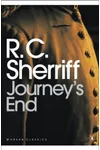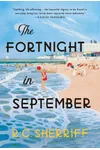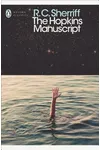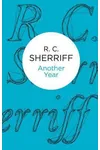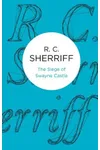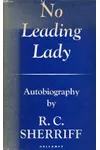Picture an English storyteller who turned the grim realities of World War I into a gripping drama and captured the quiet joys of a family holiday—meet R.C. Sherriff! Best known for his iconic play Journey’s End and the heartwarming novel The Fortnight in September, Sherriff’s knack for blending raw emotion with relatable human experiences made him a literary gem.
Born in 1896, Sherriff’s life was shaped by war, resilience, and a love for storytelling that took him from the trenches to Hollywood’s golden age. His works, rich with authenticity and subtle humor, continue to captivate readers and theatergoers alike.
The Making of R.C. Sherriff
Robert Cedric Sherriff was born on June 6, 1896, in Hampton Wick, Middlesex, to an insurance clerk father and a devoted mother. Educated at Kingston Grammar School, he was more sporty than scholarly, excelling in rowing and cricket. After school, he joined the Sun Insurance Company as a clerk, but World War I changed everything. Serving as a captain in the East Surrey Regiment, Sherriff faced the horrors of trench warfare, including a severe wounding at Passchendaele in 1917. These experiences would later fuel his most famous work.
Back in civilian life, Sherriff returned to insurance but found his passion in amateur playwriting for the Kingston Rowing Club. His early scripts, often farces, raised funds for new boats, honing his craft and setting the stage for his breakthrough.
R.C. Sherriff’s Unforgettable Stories
Sherriff’s masterpiece, Journey’s End (1928), is a raw, claustrophobic play set in a World War I dugout, drawing directly from his wartime letters. Its honest portrayal of soldiers’ camaraderie and fear struck a chord, running for 595 performances in London and inspiring global productions. Critics hailed it as a defining anti-war work, though Sherriff insisted it was about human resilience, not pacifism.
In contrast, The Fortnight in September (1931) showcases Sherriff’s lighter side. This gentle novel follows a British family’s seaside holiday, capturing everyday joys with warmth and nuance. Its universal appeal lies in Sherriff’s keen observation of ordinary life, making it a timeless classic. The Hopkins Manuscript (1939), a science-fiction tale of a moon colliding with Earth, blends satire with elegiac prose, showing Sherriff’s versatility. His screenplays, including Goodbye, Mr. Chips (1939) and The Dam Busters (1955), earned him Academy Award and BAFTA nominations, cementing his cinematic legacy.
Sherriff’s style—authentic, emotionally resonant, and subtly humorous—bridges the gap between tragedy and hope. Whether depicting war’s toll or life’s small joys, his stories feel deeply personal yet universally relatable.
Why R.C. Sherriff Matters
Sherriff’s impact lies in his ability to humanize history. Journey’s End shaped how generations viewed World War I, offering a soldier’s perspective that resonated worldwide, from London to Berlin. His novels, like The Fortnight in September, remind us of the beauty in simplicity, influencing modern writers who explore everyday life. His screenplays helped define wartime cinema, blending patriotism with emotional depth.
Today, Sherriff’s works are studied in schools, revived in theaters, and cherished by readers. His generosity—bequeathing his home to Elmbridge and supporting Kingston Grammar School—reflects a legacy of community and creativity that endures through the R.C. Sherriff Trust.
About R.C. Sherriff
- Born: June 6, 1896, Hampton Wick, Middlesex, England
- Died: November 13, 1975, Esher, Surrey, England
- Key Works: Journey’s End (1928), The Fortnight in September (1931), The Hopkins Manuscript (1939)
- Awards: Academy Award nomination for Goodbye, Mr. Chips (1939), BAFTA nominations for The Dam Busters and The Night My Number Came Up (1955)
Snag The Fortnight in September or revisit Journey’s End to dive into R.C. Sherriff’s heartfelt storytelling!
